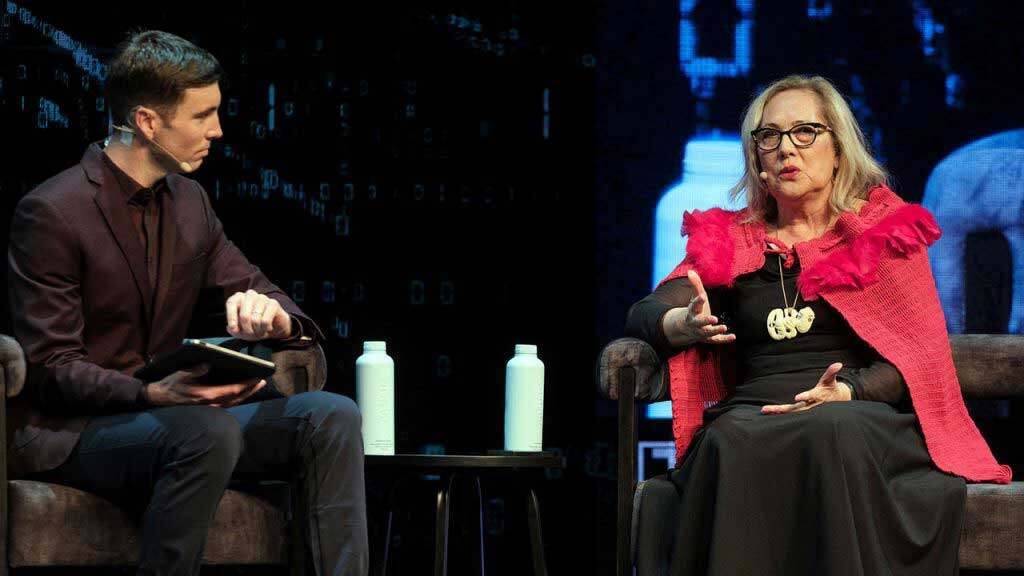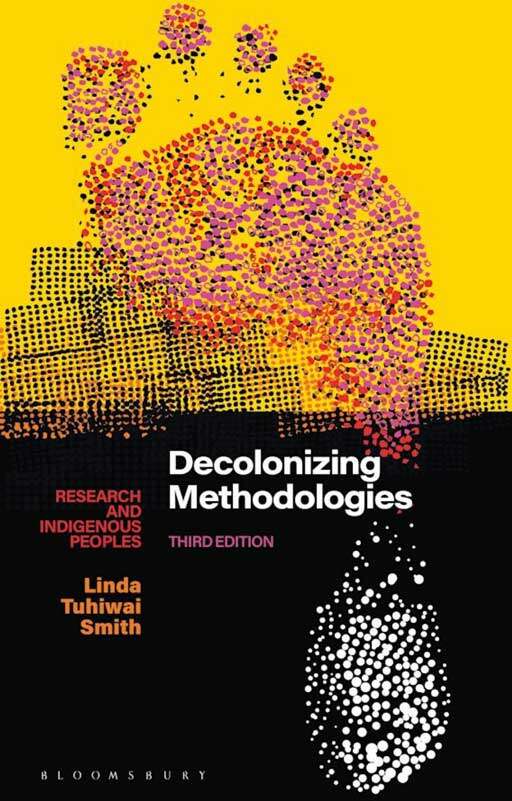Distinguished Professor Linda Tuhiwai Smith received a Distinguished Alumni Award at a ceremony on 5 April. Colleagues pay tribute to her contributions to Māori education and Indigenous research.


Every year, Waipapa Taumata Rau, University of Auckland presents its Distinguished Alumni Awards (DAA) to outstanding individuals who exemplify excellence in their professions, communities and beyond.
Among this year’s five recipients was Distinguished Professor Linda Tuhiwai Smith, who received the prestigious accolade on 6 April at the Taumata ceremony organised by the University’s Alumni Relations and Development.
At the Taumata event, she joined fellow DAAs Mitchell Pham, Simon Phillips, Pete Bethune and Young Alum Simran Kaur on the couch to talk about their contributions to society with host Jack Tame.
She talked about some of the challenges she had overcome to succeed, having been initially told she needed to make a stark choice: ‘Be successful or be Māori’. She proved them wrong.
“When I watch young Māori, they want the world,” Linda told the Taumata audience. “And we need an education system that makes that possible. When I was educated, it didn’t make that possible; in order to get that part of the world, you had to sacrifice this part. We don’t need to do that anymore.”
Linda (Ngāti Awa, Ngāti Porou, Tuhourangi) is internationally recognised for her seminal work Decolonizing Methodologies: Research and Indigenous Peoples, which continues to shape research methodologies worldwide.
As a co-founder of Ngā Pae o te Māramatanga (NPM), the Māori Centre of Research Excellence, and a distinguished professor at Te Whare Wānanga o Awanuiārangi since 2021, Linda’s influence spans academia and Indigenous communities. She was made a Companion of the New Zealand Order of Merit in 2013 for her service and won the Royal Society’s Rutherford Medal in 2023.
“Professor Linda Tuhiwai Smith’s generosity of spirit and constant support to other Māori researchers and organisations has been consistent and unwavering.”
-Professor Melinda Webber, Faculty of Education and Social Work
At the University of Waikato, Linda held multiple leadership roles, including Pro-Vice Chancellor Māori, Dean of the School of Māori and Pacific Development, and Director of Te Kotahi Research Institute.
She also chairs NPM’s International Research Advisory Board, with the aim to advance Indigenous research globally.
Her advocacy for te ao Māori can be traced back to the 1970s as a founding member of Ngā Tamatoa – a prominent Māori activist group. Alongside fellow members, she advocated against racial discrimination, Treaty of Waitangi breaches, and played a pivotal role in transformative Māori educational interventions, including Te Kohanga Reo and Kura Kaupapa Māori.
In recognition of her lifelong commitment to Indigenous research and scholarship, Linda has received numerous accolades, including honorary doctorates and prestigious awards such as the Prime Minister’s Lifetime Achievement Award for Education.
“Linda’s intellectual leadership has shaped the thinking of generations of scholars, not just in Aotearoa, but in the 100+ countries inhabited by Indigenous peoples.”
-Professor Linda Waimarie Nikora, Faculty of Arts
Influence on Waipapa Taumata Rau
Since hearing of her Distinguished Alumni Award, colleagues have been expressing their gratitude for Linda’s impact on their careers.
Associate Professor Daniel Hikuroa (Māori Studies) says she has had a profound influence on his work.
“Linda’s scholarship literally changed what I thought to be possible, and has heavily influenced the why, how and what I do in my mahi,” he says. “What is also amazing is her boundless generosity.”
Professor Yvonne Underhill-Sem (Faculty of Arts) says Linda’s visionary approach paved the way for meaningful progress for Indigenous academics.
“Linda embodies principled clarity in her thoughts, words, and actions, exceeding even the highest expectations for tuakana-teina relations,” Yvonne says.
“Her generous advice and encouragement on an application for a Centre of Excellence for Pacific research was invaluable. She has consistently emphasised the need for a paradigm shift in how universities in Aotearoa New Zealand value knowledge generation from Indigenous peoples.”
She says Linda’s visionary approach and commitment were instrumental in paving the way for meaningful change and progress for Indigenous peoples in academia, in Aotearoa and beyond.
“Linda’s understanding of the enduring nature of Indigenous struggles reflects her visionary mindset. Her continued commitment to scholarly and poetic writing, as well as her mentorship and research advice, exemplify her commitment to present and future generations.”


Professor Linda Waimarie Nikora (Faculty of Arts) says the Distinguished Alumni award is well deserved considering Linda’s longstanding contributions.
“In 2023, we welcomed acclaimed academic Linda to be one of our cherished NPM Ruānuku, or wisdom holders. She has been part of the NPM whānau since our inception in 2002, serving as an inaugural co-director alongside Professor Michael Walker.
“In 2021, Linda was the first Māori scholar (and one of only a few New Zealanders) to be elected to the prestigious American Academy of Arts and Sciences, and was also awarded the Royal Society Te Apārangi’s Rutherford Medal – its highest research honour.”
She says it is difficult to convey the depth and breadth of the lifetime contribution that Linda has made to NPM, and to Māori and Indigenous research more broadly.
“Her intellectual leadership has shaped the thinking of generations of scholars, not just in Aotearoa, but in the 100+ countries inhabited by Indigenous peoples.
“Decolonizing Methodologies … spoke truth to power when others were unable to do so.”
Professor Melinda Webber emphasises Linda’s generosity of spirit and constant support to Māori researchers and organisations.
“It has been consistent and unwavering. She once said that a system of excellence that sucks the joy out of researchers cannot be conducive to excellence, further noting that the research ecosystem is very important for excellent Indigenous research.
“She said: ‘Excellence arises in a community of scholars who share each other’s visions and work, support emerging researchers and go the extra mile to make sure that they all flourish.”






































